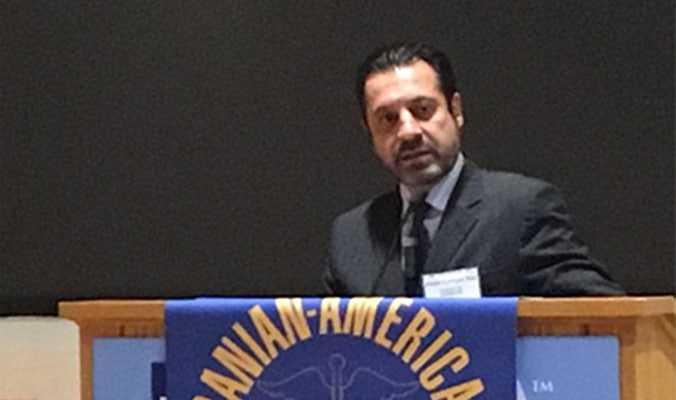Differences Between a Maryland Protective Order & Peace Order: A Legal Comparison
Both Maryland Protective Order and Maryland Peace Order statutes serve as civil remedies to protect and shield individuals from “abuse” and “threats of abuse” as that term (abuse) is defined by the corresponding Maryland Statute (see below).
While they share procedural similarities, they are governed by distinct statutes, apply to different relationships, and offer varying scopes of relief. Therefore, understanding these differences is essential for both petitioners and respondents navigating final protective order and final peace order proceedings.
Maryland Protective Order and Peace Order Statutes
Protective Order –Md. Code, Family Law § 4-501 et seq.
Peace Order –Md. Code, Courts & Judicial Proceedings § 3-1501 et seq.
If you are seeking a Maryland protective order lawyer or a peace order attorney for a final protective order or peace order hearing call us direct at (301) 309-0660 or visit our Contact page HERE.
Eligibility: Who Can File?
Maryland Protective Order Eligibility
Available only to individuals with specific relationships to the respondent:
- Current/former spouse
- Cohabitant (90+ days within 1 year)
- Relative by blood, marriage, or adoption
- Parent/stepparent/child/stepchild residing together
- Vulnerable adult
- Shared parent of a child
- Sexual relationship within 1 year
- Victim of rape/sexual offense within 6 months
Statute: Md. Code, Fam. Law § 4-501(m)
Maryland Peace Order Eligibility
Available to individuals not eligible for a protective order:
- Neighbors, coworkers, acquaintances, strangers
- Employers filing on behalf of threatened employees
Statute: Md. Code, CJP § 3-1502(a)
If you are seeking a Maryland protective order lawyer or a peace order attorney for a final protective order or peace order hearing call us direct at (301) 309-0660 or visit our Contact page HERE.
Definition of Abuse
In Maryland Protective Order Statute Abuse Includes:
• Assault
• Stalking
• False imprisonment
• Rape or sexual offense
• Child or vulnerable adult abuse
• Threat of serious bodily harm
Statute: Md. Code, Fam. Law § 4-501(b)
In Maryland Peace Order abuse “Act” Includes:
All of the above plus:
• Harassment
• Trespass
• Visual surveillance
• Revenge porn
• Malicious destruction of property
• Misuse of electronic communications
Statute: Md. Code, CJP § 3-1501(a)
A fine distinction between the Maryland protective statute and Maryland peace order statute is that harassment is not considered an act of abuse under the protective order statute but it is a defined “Act” under the peace order statute. That means that harassment does not qualify one for obtaining a protective order. However, it does qualify for obtaining a final Maryland peace order if you can prove the harassment and you meet the other qualifications necessary to obtain a peace order.
For example, if you try to obtain a peace order against your spouse for harassing you, your petition should fail because you do not meet the “relationship test,” as you cannot obtain a peace order against a spouse. You could only attempt to obtain a protective order against your spouse but harassment does not qualify as an act of “abuse” under the Maryland protective order statute. Nevertheless, you may still be entitled to obtain a protective order against your spouse if one of the other acts of “abuse” occurred, as that term is defined in the statute.
Relief Available Through Maryland Protective Order and Peace Order statutes
Maryland protective Order May Include:
• No contact/stay away
• Vacate shared home
• Temporary custody of children
• Emergency family maintenance
• Firearm surrender
Statute: Md. Code, Fam. Law § 4-506(d)
Maryland Peace Order May Include:
• No contact/stay away
• Counseling referral
• Prohibition of specific acts
Statute: Md. Code, CJP § 3-1503.1
If you are seeking an attorney and legal representation in a protective order hearing or a peace order hearing call us direct at (301) 309-0660 or visit our Contact page HERE.
Duration of Maryland Protective Orders and Peace Orders
Maryland Protective Order – Up to 1 year, extendible
Maryland Peace Order -Up to 6 months, extendible for additional 6 months
Case Law Highlights for Maryland Protective Orders and Peace Orders
Koshko v. Haining, 398 Md. 404 (2007) – Clarified constitutional limits on custody relief in protective orders—emphasizing due process when awarding custody without full family law proceedings.
Carrasquillo v. State, 230 Md. App. 100 (2016) – Affirmed that violation of a peace order is a criminal offense under Md. Code, CJP § 3-1508, even if the underlying conduct is minor.
Gillespie v. Gillespie, 206 Md. App. 146 (2012) – Held that mutual protective orders require independent findings of abuse for each party—courts cannot issue mutual orders without separate petitions and hearings.
Strategic Considerations When Seeking a Maryland Protective Order or a Maryland Peace Order
-
- Jurisdiction: Protective orders may be filed in District or Circuit Court; peace orders are filed only in District Court.
-
- Burden of Proof: Both require proof by a preponderance of the evidence at final hearings.
-
- Collateral Consequences: Protective orders may trigger firearm prohibitions under federal law; peace orders typically do not unless paired with criminal charges.
-
- Mutual Orders: Courts may not issue mutual protective orders unless both parties file and prove abuse independently (Gillespie).
Conclusion
While both Maryland protective and peace orders aim to prevent future harm, a Maryland Protective Order is reserved for intimate or familial relationships and offer broader relief, including custody and housing protections as well as financial support. A Maryland Peace Order serves a wider public, covering harassment and abuse from non-domestic actors. Petitioners must carefully assess relationship status, statutory eligibility, and evidentiary burdens before filing.
Additionally, when you are filing to obtain a court order that protects your safety and health, precision matters—misfiling the wrong type of order can delay relief, jeopardize credibility, or expose you to unnecessary risk.
If you are seeking an attorney and legal representation for a obtaining a Maryland protective order due to domestic violence or domestic abuse call us direct at (301) 309-0660 or visit our domestic violence page HERE.
For our defense attorney and legal representation to defend against a protective order call us direct at (301) 309-0660 or visit our protective order page HERE.
Find additional information on our Peace Order Defense Attorney and legal representation to defend against peace orders by calling us direct at (301) 309-0660 or visit our peace order page HERE.
Kamkari Law – Maryland Protective Order Lawyer & Peace Order Attorney
Serving Montgomery, Frederick, & Howard Counties in Maryland
Maryland Protective Order Lawyer and Peace Order Attorney




4 Responses